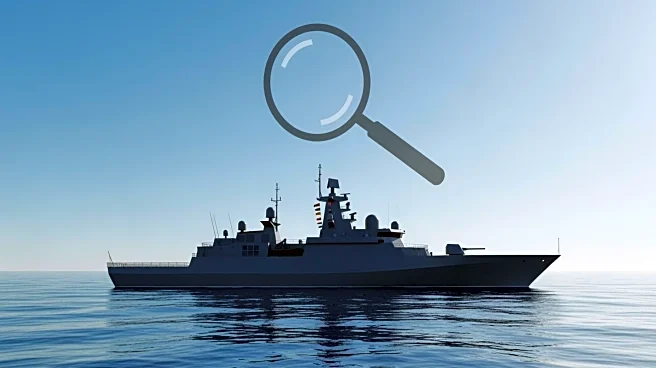What's Happening?
The European Union's diplomatic arm, the European External Action Service (EEAS), is advocating for a maritime declaration that would empower EU member states to collaborate with flag states to conduct
inspections on Russia's 'shadow fleet' of oil tankers. This initiative is part of the EU's broader strategy to curb Russian oil and gas revenues, which are believed to be funding Moscow's military activities in Ukraine. The proposal comes as EU foreign ministers prepare to meet to discuss new sanctions against Russia. The Group of Seven (G7) industrialized nations have also agreed to work towards this goal, targeting countries that assist Russia in evading sanctions and those that have increased their imports of Russian oil. The EEAS document highlights the need for bilateral agreements between flag states and the EU to facilitate pre-authorized boardings for inspections, addressing the issue of fake flag registrations. The shadow fleet is estimated to consist of 600 to 1,400 vessels, with over 400 ships already sanctioned by Brussels.
Why It's Important?
The EU's move to inspect Russia's shadow fleet is significant as it represents a concerted effort to enforce sanctions more robustly and cut off a critical revenue stream for Russia. By targeting the shadow fleet, the EU aims to prevent Russia from circumventing existing sanctions, thereby increasing economic pressure on Moscow. This action could have substantial implications for global oil markets, potentially affecting oil prices and supply chains. Countries that have been aiding Russia in bypassing sanctions may face diplomatic and economic repercussions. The initiative also underscores the EU's commitment to supporting Ukraine by weakening Russia's financial capabilities to sustain its military operations.
What's Next?
The EU is expected to adopt its 19th package of sanctions soon, which will likely increase the number of sanctioned vessels to approximately 560 and expedite a ban on Russian liquefied natural gas imports by a year to January 1, 2027. The EU will also target tanker refueling services, known as bunkering. As these measures are implemented, there may be increased diplomatic negotiations with flag states to secure agreements for vessel inspections. The effectiveness of these sanctions will depend on the EU's ability to enforce them and the cooperation of international partners.










